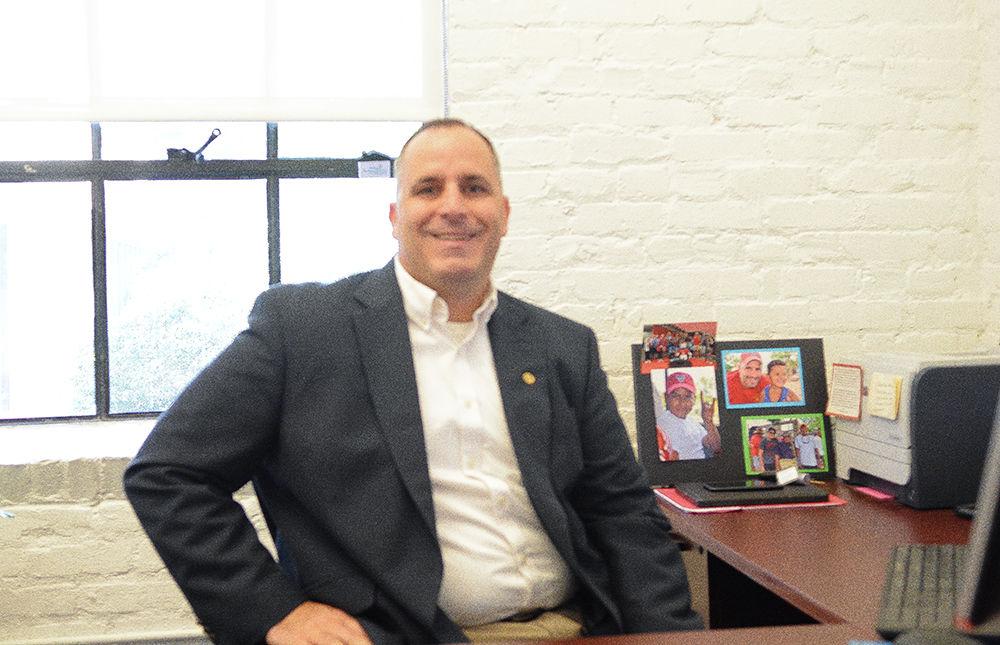Technician sat down with Mike Giancola, an assistant vice provost, to learn more about Student Ombuds Services. He has been with NC State for 20 years and has served as student’s ombudsperson for the past four years.
Could you please tell me more about yourself and your position here?
The ombuds is a relatively new resource at NC State. This is only the fourth academic year that we’ve had a student’s ombudsperson, and basically as the student’s ombuds, I serve a confidential, informal resource for students, which means that any student can come talk to me about any issue — undergraduate, graduate student, about any issue concerning them, academic, personal, interpersonal, organizational. I like to say that if it’s important to the student, then it would be important for me as the ombuds to help them.
How would you describe an average day at your office?
I think that’s what’s most interesting about the ombuds is that there’s not necessarily an average day in the sense that if there’s an average day it’s spending a lot of time meeting with students about issues of import. But, at any given day, I could be working with different issues. … I think, more succinctly, an average day is a lot of times spending time talking with students and or with faculty and staff about students and student life issues.
In two sentences or less, how would you describe the Student Ombuds Services mission?
Student Ombuds Services is a confidential, informal, impartial and independent resource for the campus community to really help students navigate their campus experience and to address any issues of concern that they may have.
What type of trends are you seeing when it comes to do with issues that students come here to talk about?
More broadly, some of the trends that I’m seeing here at Student Ombuds is certainly academic concerns, as students try to navigate their personal lives with their academic work. When I work with graduate students, a lot of the issues that I deal with are students trying to navigate their relationship with their advisors, and recognizing that their advisor is the single most important person in their academic experience, whether it’d be their advisor or PI, primary investigator. … Also, just personal issues, conflict between peers, maybe people that they work with. … I could say more broadly that a lot of what I deal with are academic issues, a lot of issues with graduate students and their advisors and PIs, a lot of consults with faculty and staff members about student issues or student life issues whether those be in the classroom or the co-curricular space in the campus. …
What are your plans for the future?
One of the things with the ombuds is I work very hard to try to be accessible for the students and to faculty and staff who have student issues that they want to talk through, and one way that I am doing that is that, just this past week, [I] started hours over on the biomedical campus, so the College of [Veterinary] Medicine. With the schedule that many of our vet med students have, it’s not feasible oftentimes for them to come to the main campus for appointments. … I’m in the process of hopefully developing a similar arrangement out on Centennial Campus. … The other thing is, I spend a lot of time doing presentations, facilitating dialogues, maybe helping students and faculty with difficult conversations, so not everything is a one-on-one meeting with students, but sometimes, it’s skill development trainings and other things. … I’m certainly wanting to be more accessible and more responsive to students, and I also want to try to help address the issues proactively before they become issues. …
What’s one thing that you want for every NC State student to know before they graduate?
The one thing that I would like for every NC State student to know is a recognition that in life we always need people, we’re in relationships with people, and we need others to help navigate our lives, both for positive, for resources, just for social connection. … Any student that comes to the ombuds has my pledge that I will listen, that I will try to be culturally responsive to whatever issue that they have, and that ultimately that I aim to be a resource for those students to help them make the best decisions they can.
For more information about Student Ombuds Service and scheduling appoints, students can visit the S.O.S. website.








